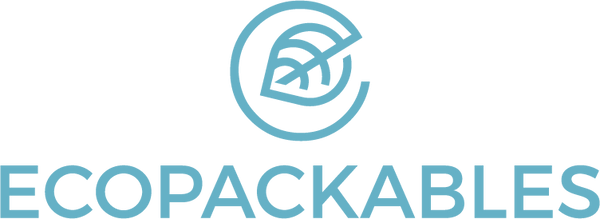As the demand for sustainable packaging grows, innovative materials such as bamboo, sugarcane, and seaweed-based plastics are emerging as promising alternatives to traditional packaging materials. These eco-friendly materials offer numerous benefits, from reducing carbon footprints to providing biodegradable options made from renewable sources. At EcoPackables, we are excited to explore and bring these new materials to market, offering custom sustainable solutions that meet the needs of various industries.
Sugarcane Waste
Sugarcane waste, also known as bagasse, is a byproduct of the sugar industry that can be repurposed into sustainable packaging. Bagasse is a fibrous material that can be molded into various shapes and sizes, making it ideal for packaging applications such as trays, plates, and bowls. It is compostable and biodegradable, breaking down naturally without harming the environment. Utilizing sugarcane waste for packaging helps reduce agricultural waste that may have otherwise been left to rot, and provides an eco-friendly alternative to conventional materials.
Seaweed-Based Plastics
Seaweed-based plastics are an innovative solution to the plastic pollution problem. Seaweed is abundant and grows rapidly in marine environments, making it a sustainable resource. Seaweed-based plastics are biodegradable and can decompose in natural environments, reducing the impact on landfills and oceans. These materials can be used for a variety of packaging applications, including films, bags, and containers. Seaweed-based plastics not only offer a sustainable alternative to petroleum-based plastics but also contribute to the health of marine ecosystems by providing habitats, acting as a carbon sink and improving water quality while reducing the amount of new microplastics entering our waterways and food sources.
Bamboo
Bamboo is a renewable resource that grows quickly without the need for pesticides or fertilizers. Its strong fibers make it an excellent material for packaging, providing durability and a natural aesthetic. Bamboo can be more efficient at sequestering carbon dioxide than trees and can still be recycled along with traditional paper recycling or composted, making it an environmentally friendly option. It can be used for a variety of applications, including food containers,shipping and retail boxes, mailers, and more. Bamboo's strength and rapid renewability make it a viable alternative to traditional paper and plastic packaging.
Benefits and Applications
The benefits of using bamboo, sugarcane waste, and seaweed-based plastics in packaging are numerous. These materials are renewable, biodegradable, and recyclable, reducing the environmental impact of packaging production and waste. They offer versatile applications, from e-commerce to retail packaging, meeting the needs of various industries. By incorporating these innovative materials into packaging solutions, businesses can enhance their sustainability efforts and appeal to environmentally conscious consumers while helping to progress the technology.
EcoPackables' Commitment
At EcoPackables, we are dedicated to bringing these innovative materials to market and providing our clients with all the latest and greatest sustainable packaging options. We believe that adopting eco-friendly materials like bamboo, sugarcane waste, and seaweed-based plastics is essential in the fight against environmental degradation. Our team is continuously researching and developing new packaging solutions that prioritize sustainability without compromising on quality or functionality.
Got more questions or want to explore our sustainable packaging options? Contact EcoPackables today and join us in making a positive impact on the planet.

